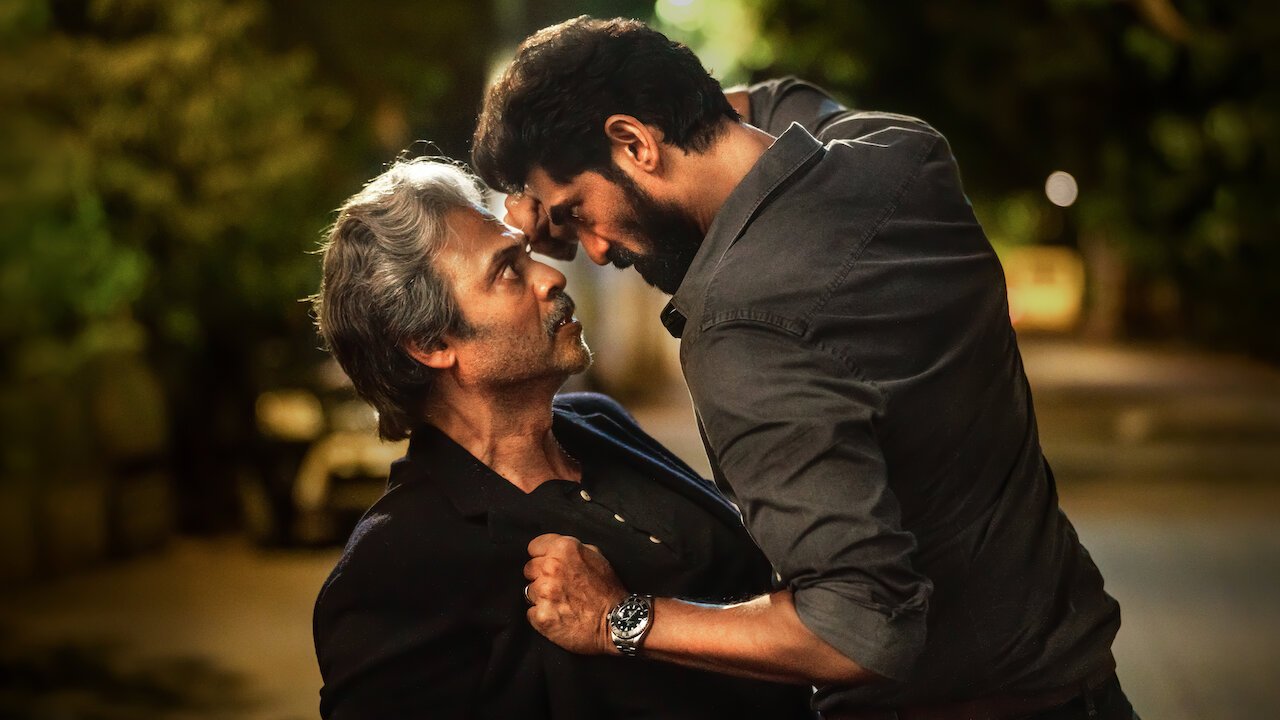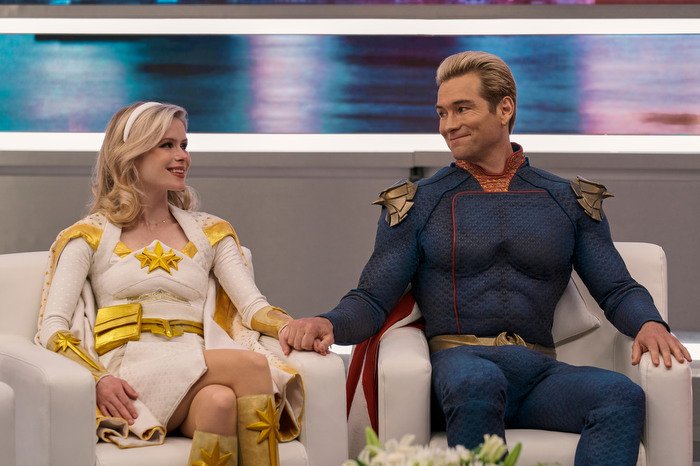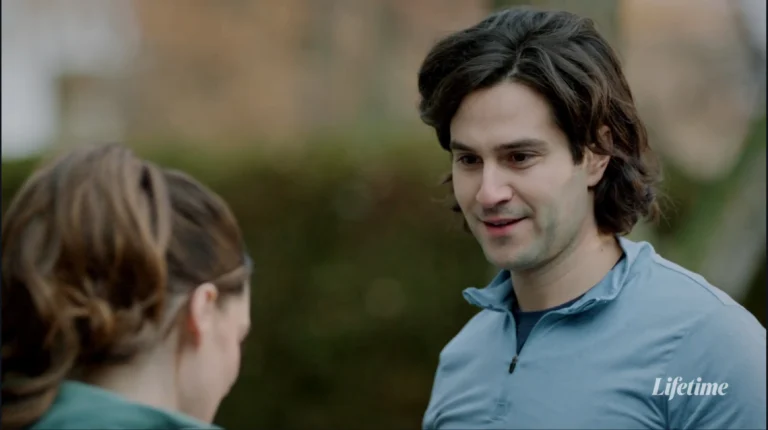Rana Naidu (Season 1) ‘Netflix’ Review: When streaming services gained prominence in this country, one of the primary attractions of storytelling within these streaming services was the liberal viewing of explicit content, which had been missing in Indian daily soaps but was ever present in long-form storytelling abroad. As the shackles on writers were finally removed, some unspoken censorship rules were also being removed.
Karan Anshuman has been the pioneer of creating long-form storytelling content with enough pulp, visceral violence, and liberal use of profanities, be it his debut Inside Edge for Amazon Prime Video or its famous sophomore sibling Mirzapur for the same streaming service. The Midas touch that Anshuman and his team of writers carried through in each of their shows comprises compelling characters who were equally proficient in delivering said profanity-laden dialogues with pizzaz while also managing to be compelling characters on screen with equally fascinating motivations. The world managed to feel as shifty as the characters in the show.
While Mirzapur fans wait with bated breath for its third season, Anshuman’s third major offering, and his first for Netflix, comes in the form of Rana Naidu, an official ten-episode remake of Ann Biderman’s crime television drama Ray Donovan. Like Ray Donovan, Rana Naidu follows the titular character (played by Rana Dagubatti), who is “a fixer for the stars.” His job is to fix scandals and issues for the elite so that their squeaky-clean image is maintained.
But the conflict arises from the fixer being unable to fix the scars in his own family due to a scandal in the past as well as a troublemaking wildcard of a patriarch in the form of Naga Naidu (Venkatesh). He gets out of jail after 15 years, having been imprisoned for a crime he didn’t commit. But his sins extend way beyond the typical absentee father trope, and as the show progresses, we are given a window into the messed-up life of the Naidus.
The love, care, and dedication given to crafting dialogues and insults with a definitive lyricism are appreciated. However, the humor mined soon devolves into sarcastic indifference, and then a genuine tiredness sets in. On the one hand, some of the insults are so creative that even Netflix’s subtitles aren’t fully able to articulate or correctly translate them in all their morbidly fascinating and hilarious glory.
On the other hand, these creative insults and general explicit dialogue have the added disadvantage of lessening their impact on a narrative. As a result, after a point, it becomes less of an entertaining feature and more of an unnecessarily comedic hindrance. Sometimes brevity works wonders. Perhaps the writers of the show could have taken the stoic nature of the titular character and utilized it in the script because conversations stop sounding like ones and instead become a banter contest on how one can creatively insult the other character in a single scene.
The insults and copious sex scenes are titillating and add to a veritable pulpy tonality. It makes sense, too, because the explored on-screen world is glamorous and tempting, where debauchery and bacchanalia go hand in hand. But all of these are the excessively gorgeous frosting on a surprisingly small cake.

Rana Naidu is a long show with ten episodes and a runtime averaging between 40 and 55 minutes. The length becomes a hindrance when it is evident that the plot lacks meat, and subplots are added to give the overall show more girth. Rana Naidu thus shares the same problems the original show had. Both the shows want to follow The Sopranos template in exploring “the family” vs. “The Family” dynamic, but “Rana Naidu” tries to devote itself to all aspects of the Naidu family.
Unfortunately, some of the subplots just aren’t interesting and only feel like wheel spinning. There are character arcs that, on paper, look impactful but don’t translate as effectively to the screen. In contrast, others could be excised from the story or decreased substantially, and it would make no discernible difference in the narrative. And the show takes the easy way out to generate interest by throwing in a creative insult or a sex scene.
There is also the added problem of the women in this story being nothing more than a siren for the main character or the angel to guide them to the light or to chastise the men when they are on their way to committing heinous crimes. A talented actress like Surveen Chawla is reduced to shouting, “What the hell, Rana?” or “Tell me what is going on, Rana?” and getting a silent grimace in return from Rana Naidu.
There are also minor moments that seem to be victims of translation. Sushant Singh’s Tej Naidu is shown to be the level-headed of the three Naidu brothers. But a horrific incident caused by his younger brother Jaffa forces him to reckon with his guilt and whether divine intervention is possible. In Ray Donovan, catholic guilt is an integral aspect working throughout and weaving in through the narrative, so Terry Donovan’s catholic guilt acting out makes sense.
The choice to supplant the Catholic Church with a cult led by a godman is inspired, but the show isn’t remotely interested in applying any consequent commentary about that. It is, however, believable that Rana Daggubati, Sushant Singh, and Abhishek Banerjee, as Rana, Tej, and Jaffa, respectively, are brothers. They share a genuine chemistry while sharing the same dialect and accent as their father, Naga Naidu, and even Asish Vidyarthi’s Surya Rao. The regional dialect seeps in even within the dialogues and insults, giving a unique verve and voice to each interaction.
The performances anchor the show and even elevate the barebones and overstretched script. Venkatesh, as Naga Naidu, is having a blast. His Naga is mischievous, malicious, and yet terrifying when he needs to be, and at no point does the explicit dialogue come off as stiff. Rana Dagubatti, as the titular Rana Naidu, is expected to be stoic, grimacing, and terrifying, and he is capable enough to pull that off. The script doesn’t ask him to deliver beyond these moments, except once in Episode 9, when the full extent of a key revelation hits home, and he collapses in the rain.
Dagubatti sells that moment truly well. Abhishek Banerjee, as Jaffa, manages to evoke sympathy and heartbreak, as his storyline is one of the few heartfelt ones in the show, along with Sushant Singh’s Tej. Venkatesh’s Naga Naidu, on the other hand, has the most overstretched and weak story arc. He comes off as inconsistent at certain moments as the creators attempt too much to make the character shifty, dubious, and slimy. The fault, however, doesn’t lie with Venkatesh, who truly elevates the role given to him, a feat similarly achieved by Jon Voight’s role as Mickey in Ray Donovan. Asish Vidyarthi, too, enters late in the series but leaves an impact.
“Rana Naidu” thus feels like it was written by an overexcited teenager who finally learned that slurs and insults exist. Perhaps it was a matter of one-upmanship from Mirzapur and The Family Man, considering the creator and the screenwriter of the two, respectively, worked on this show. Still, the focus truly felt more on entertaining the audience based solely on the novelty of creative insults as well as a veteran Telugu superstar like Venkatesh playing a role completely against his family-friendly image.
Like all, the novelty does wear off pretty quickly, and Rana Naidu simply doesn’t have enough of a compelling plot to carry it through the finish line. In that regard, it is a very faithful adaptation of Ray Donovan, but it is nothing more than a passable entertainer. It did manage to strengthen my vocabulary of creative insults, so brownie points should be awarded.








